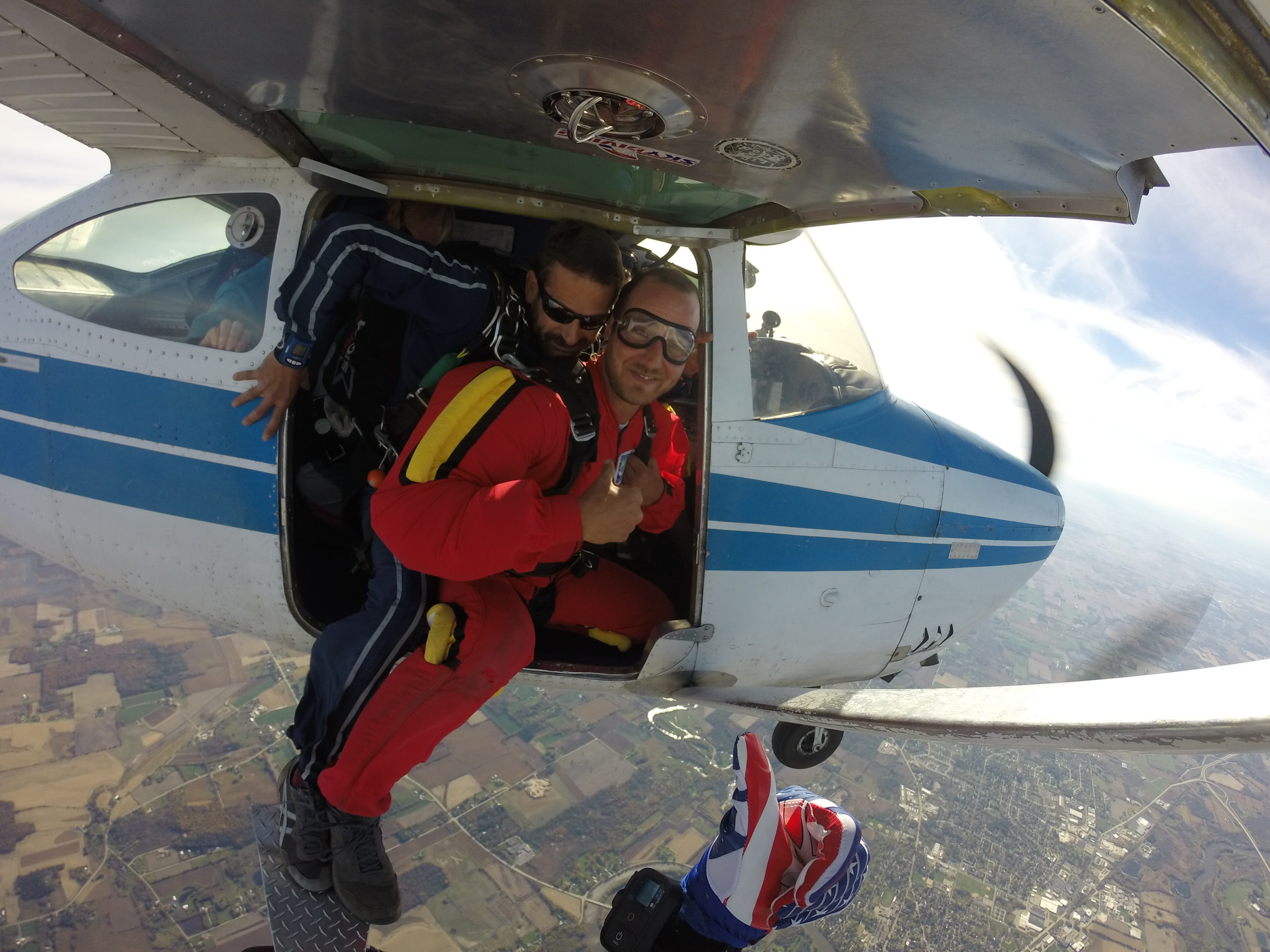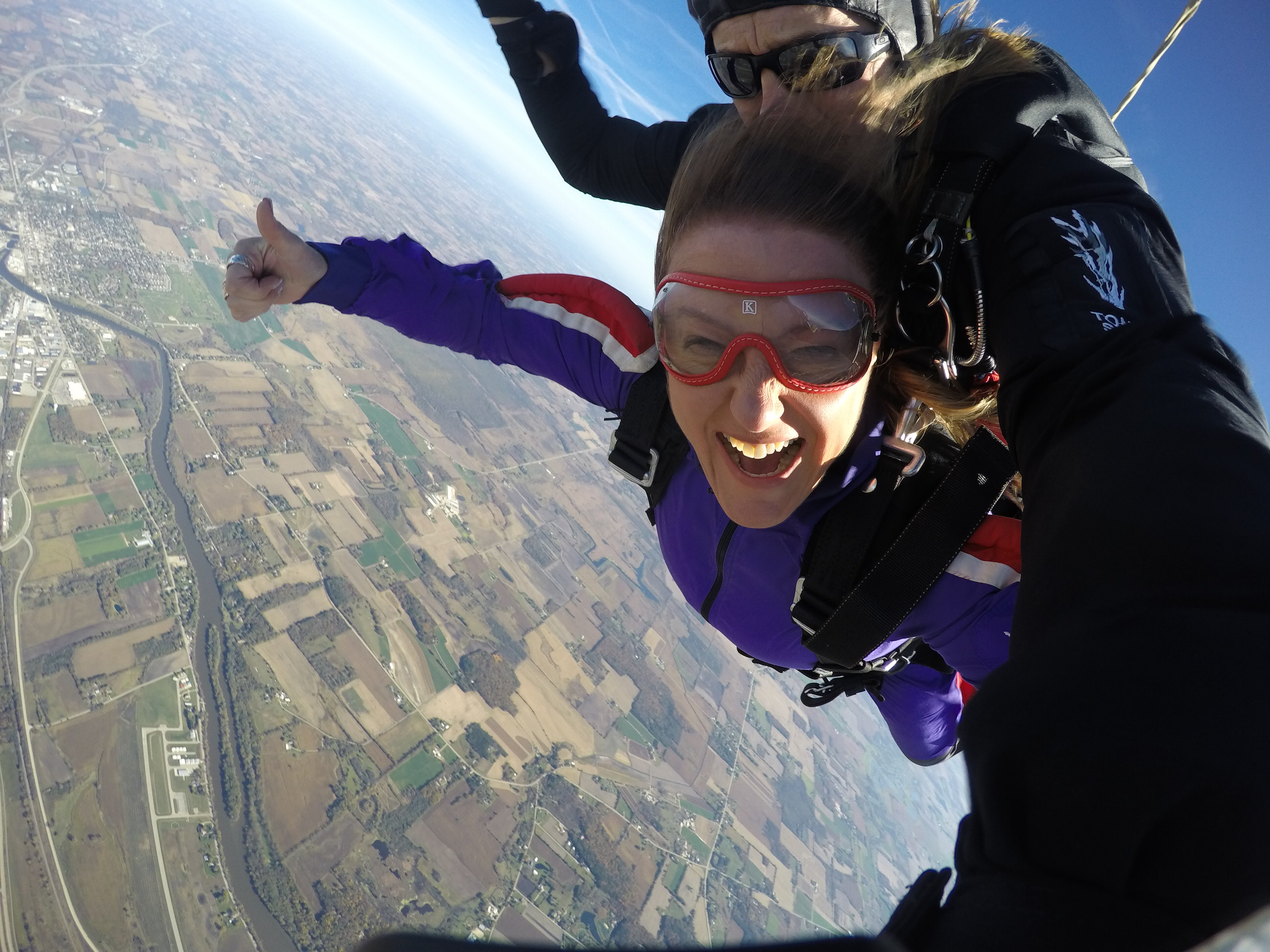What Motivates Us To Take Risks?
Skydiving Safety
Posted by: Wisconsin Skydiving Center 7 years ago
Think that taking “unnecessary” risks is the farthest thing from worthwhile?
Think again.
A new study, published by researchers from Bangor University in the Journal of Personality and Social Psychology, has found that risk has off-label benefits that bear taking a closer look. It concluded that “high-risk” activities can serve to help some participants control their emotions and–therefore–their lives. To get the data they needed, the researchers conducted an extensive poll of participants in sports generally categorized as “extreme,” such as mountaineers and–of course–skydivers.

The researchers specifically looked at “prolonged and challenging risks” to “understand [the] motive for that personal challenge.” In the end, the study found that the subjects sought out activities which “physically challenged the limits of the self in a way that is not readily available in even the most challenging of normative everyday situations.” But why, you might ask, Would someone need to push that far? Isn’t there an easier way to do it? As it turns out: No. According to the Bangor study, the subjects needed to reach a threshold of challenge in order to reap the full benefits of the activity.
The data gathered by the study definitely piqued our interest. After all, a skydiver and a mountaineer might look similarly “extreme” from the outside looking in, but were noticeably different beasts close-up. The data reflected this: Skydivers reported a “significantly higher need for sensation than did mountaineers and controls,” implying that it’s the adrenaline rush that we’re after. That assumption falls away with the next data sets, however: Athletes across the board “reported greater emotional regulation and agency during their activities” than the control group of non-reported-risk-takers. So, it’s not just about the adrenaline rush, after all–it’s about the emotional reins you take when you choose to participate in an activity that requires your full engagement.

The authors made another discovery, too. They noted that “people who engaged in high-risk sports believe life should be filled with these intense experiences and feelings;” that “people who engage in the more arduous high-risk activities […] do so because they have a higher expectation of what life should offer, or what life should be.” The study also noted that the feeling of control over their destinies and agency over the shockwaves of their emotional lives lasted long beyond the experience of the activity itself. They reported that this feeling of empowerment “spilled over into their everyday lives upon their return.”
We couldn’t agree more. It’s research like this that serves to confirm what we’ve known for all the many years we’ve been jumping–and helping new athletes to achieve their dream of jumping along with us. The risk of a skydive, after all, pays off in life-enriching spades, and nothing makes us happier than watching a new jumper experience that for the first time.
Is that something you want to feel? Reach out to us today!
Categories:
You May Be Interested In:

What’s a Skydiving AAD & Why It Matters
10 months ago by Wisconsin Skydiving Center

How Much Experience Do Skydiving Instructors Have?
11 months ago by Wisconsin Skydiving Center

Do Skydivers Have Backup Parachutes?
1 year ago by Wisconsin Skydiving Center

Is Skydiving Safe? Stats, Equipment & Your First Time
1 year ago by Wisconsin Skydiving Center